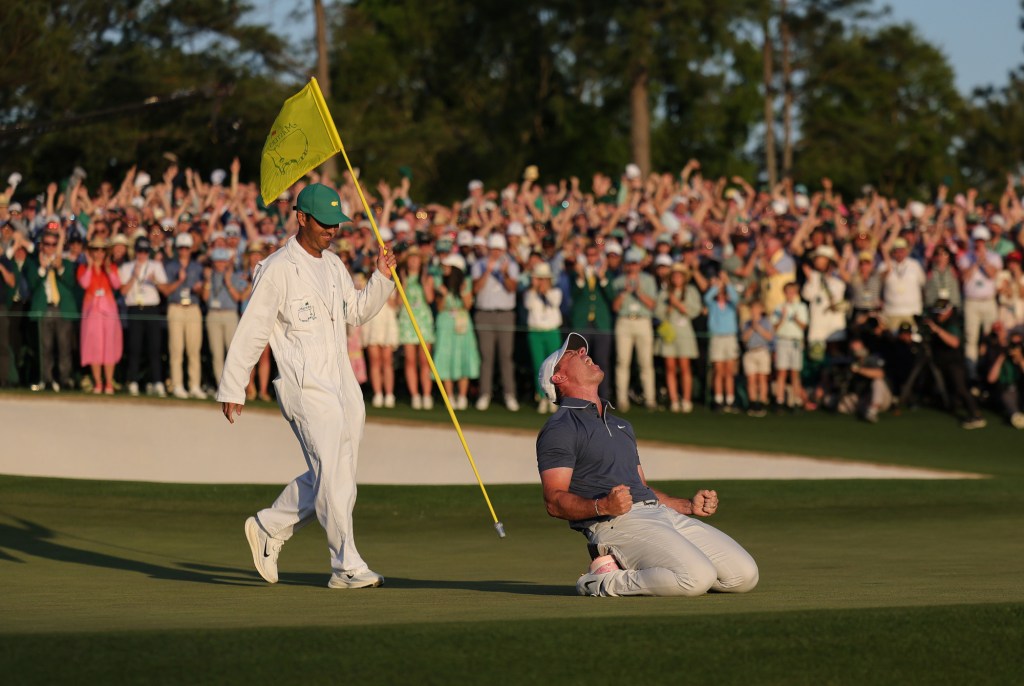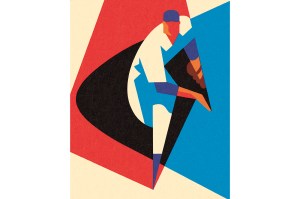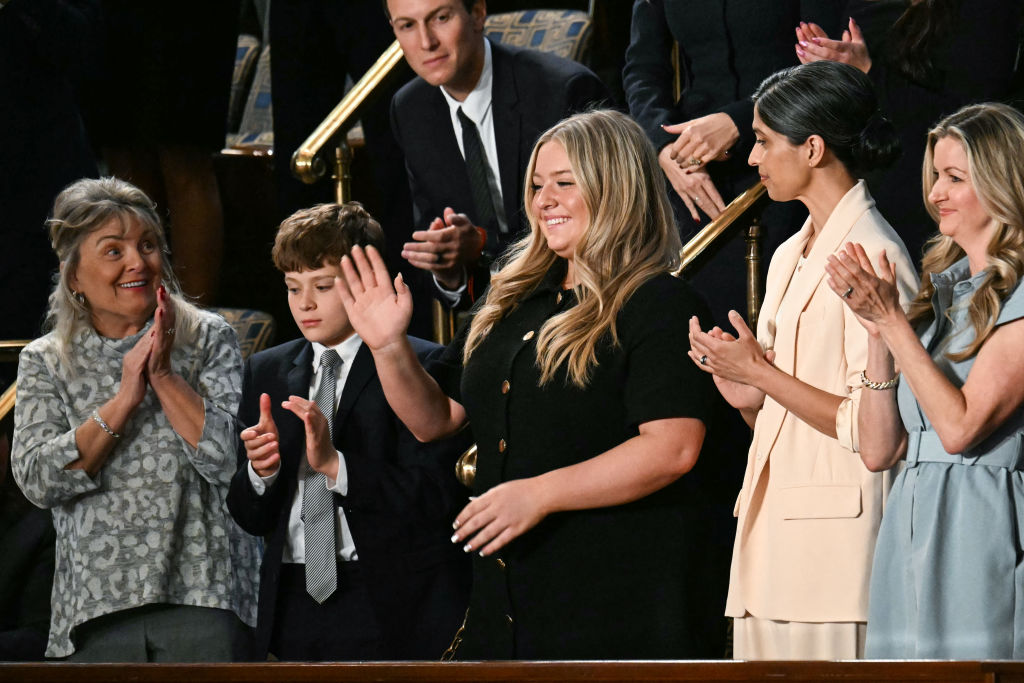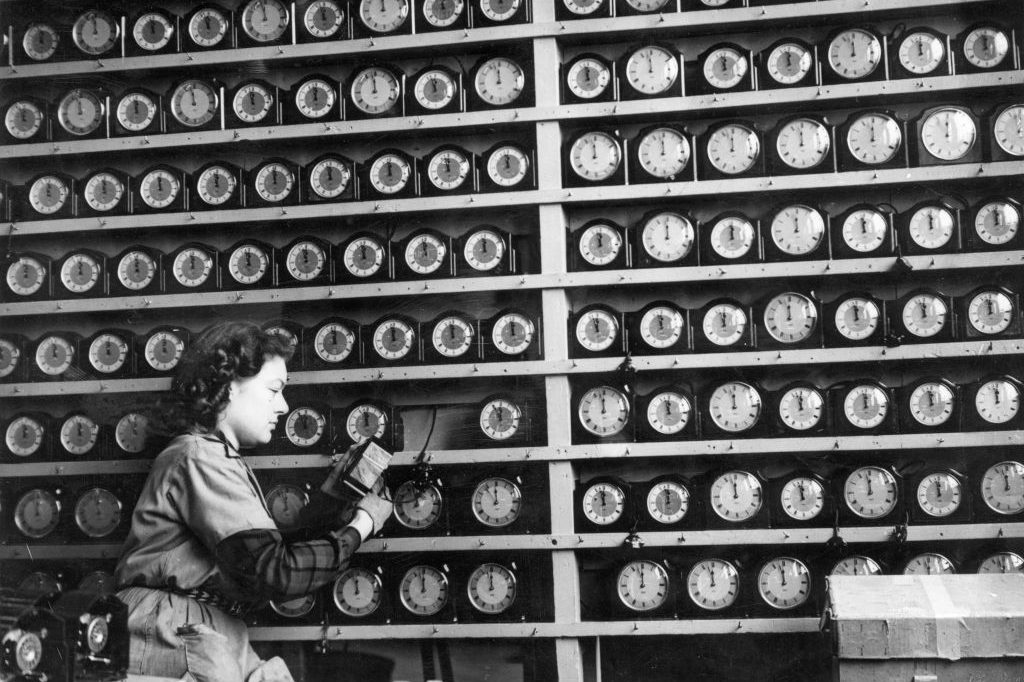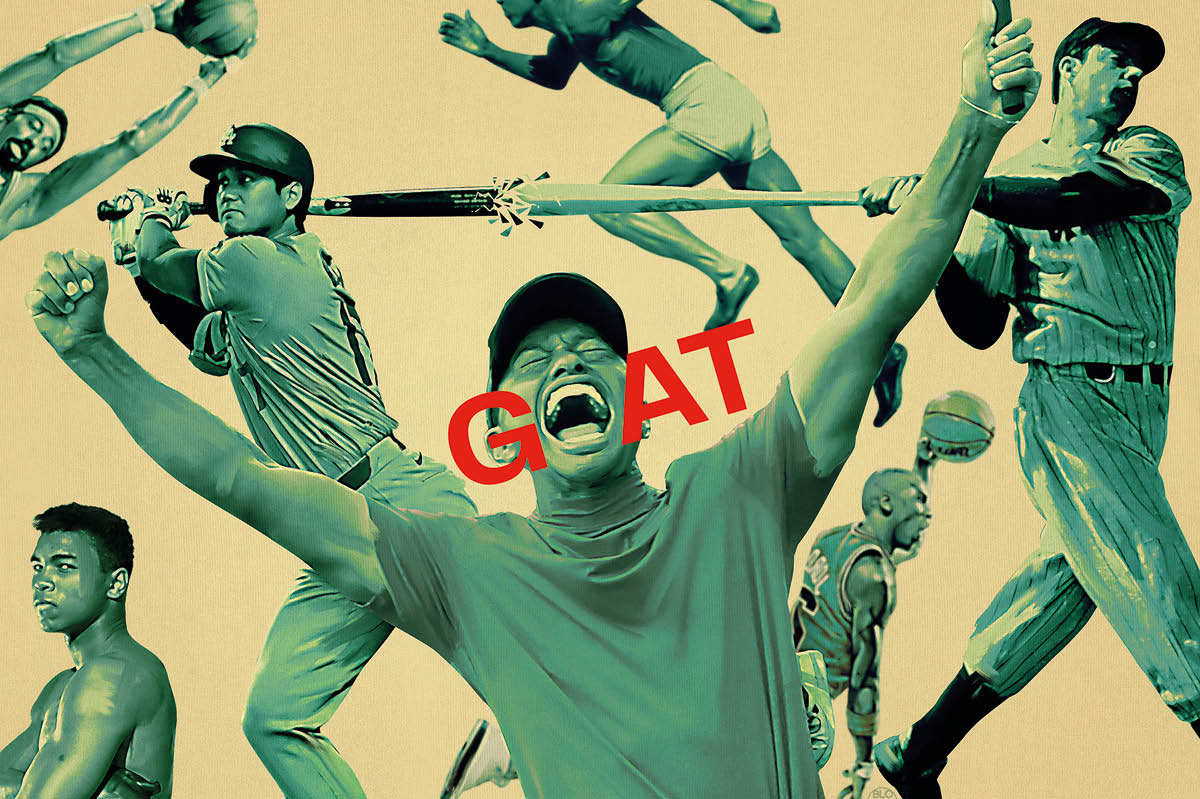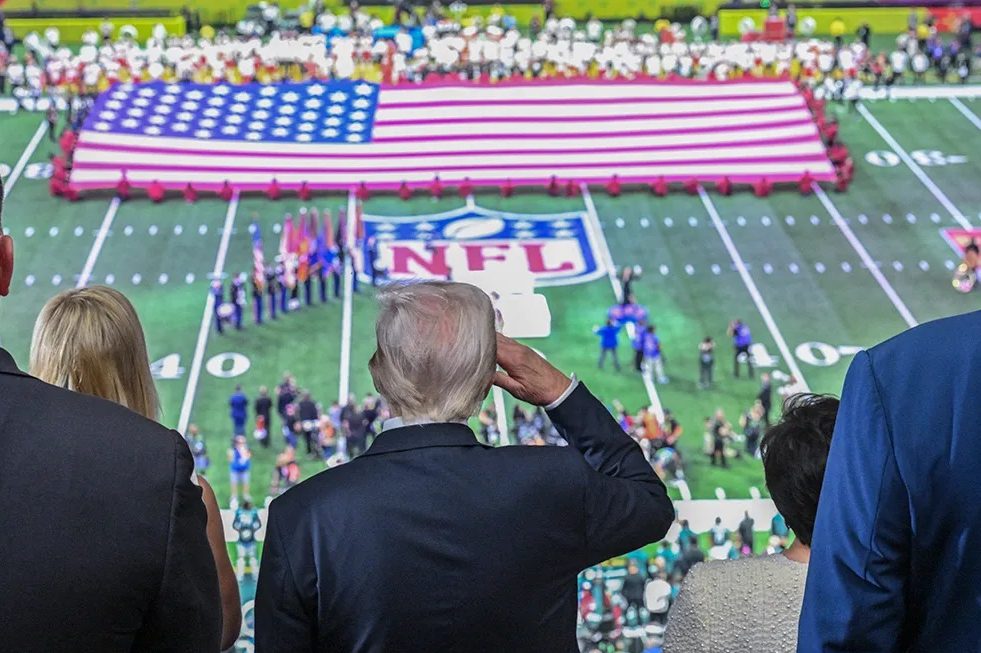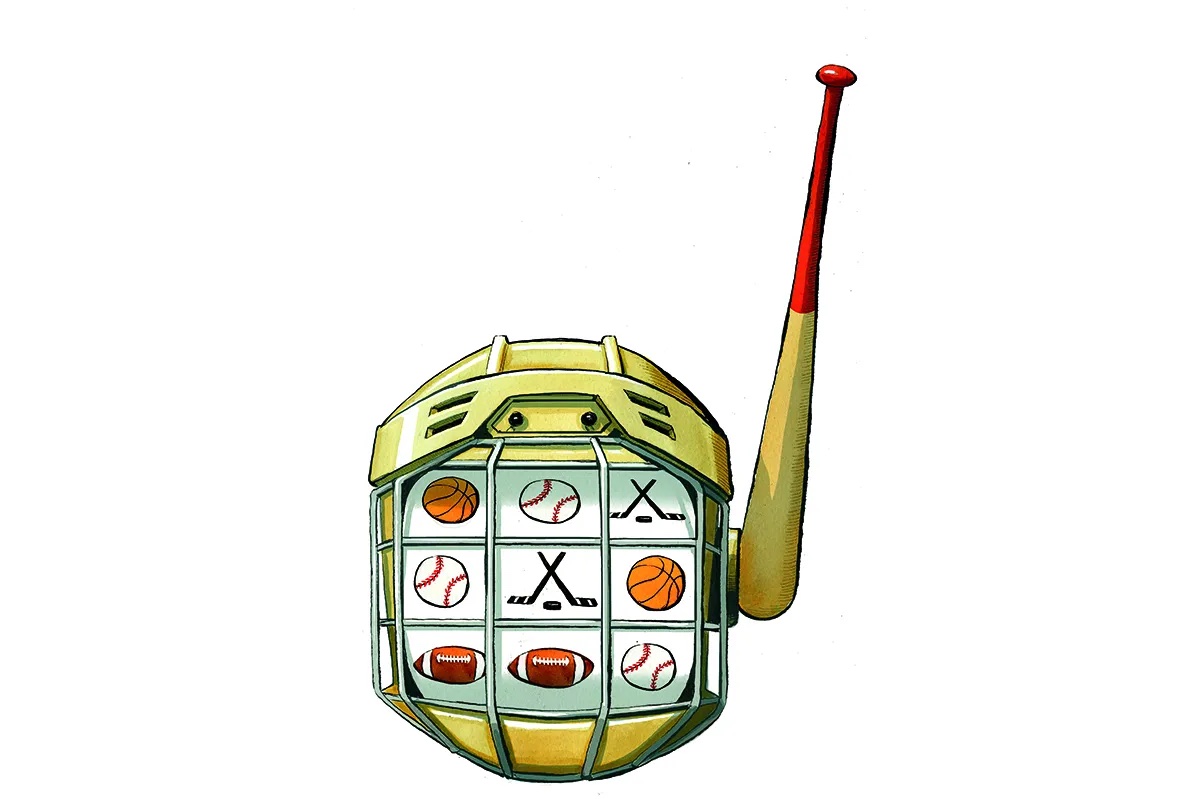Eighteen years ago, half his lifetime away, Rory McIlroy made his debut as a professional golfer at the British Masters at the Belfry, Sutton Coldfield. The Northern Irish teenager began with a respectable round of 69 and finished 42nd to earn a shade over £10,000. He said he would spend his first pay check on taking his then girlfriend to the cinema and put the rest towards buying a house near his mother “so she can still do my washing.”
Late last night, McIlroy won $4.2 million at another Masters, the major in Augusta, Georgia, taking his career winnings to about $160 million. But the money was the least of his concerns.
Of far greater value was the $250 green jacket slipped on to his shoulders after McIlroy sealed victory in a play-off. It brought him membership of an exclusive club – only 56 others have won the Masters since it began in 1934 – and the right to choose the menu for next year’s champions dinner. If he spills gravy on the lapel, Ma McIlroy won’t be able to wash it: the jacket, like her son’s heart, will never leave Augusta.
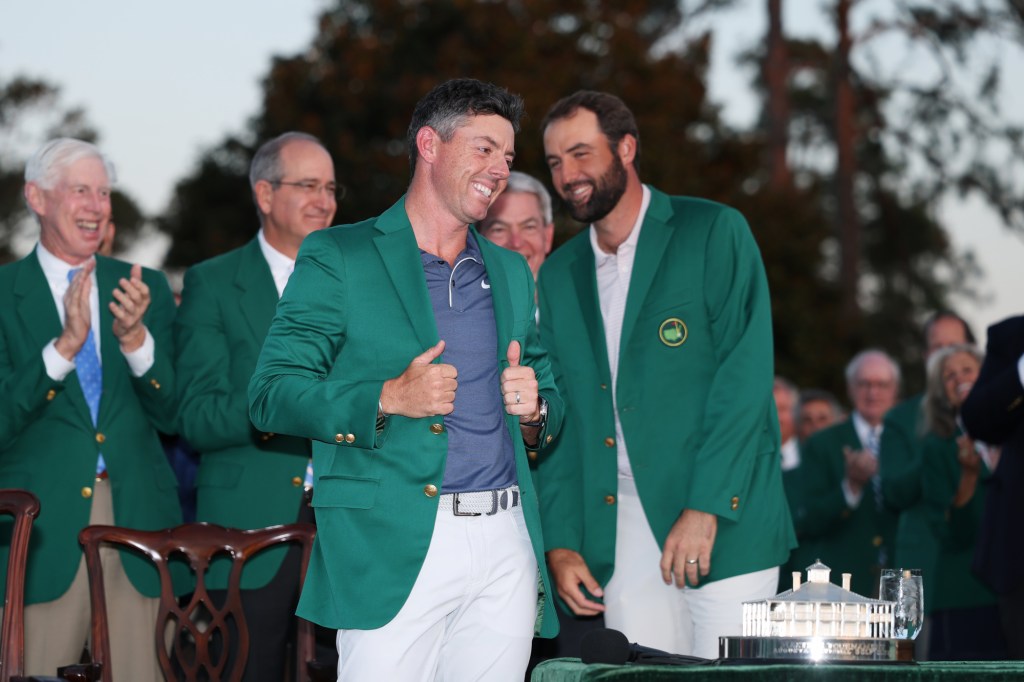
Apologizing to his countrymen, not least as this year’s Open Championship will be played at Portrush, 60 miles from where he grew up, McIlroy said the Masters was the tournament that mattered most to him. It completed the career grand slam, something only five players had done before, adding it to the US Open he won in 2011, the 2014 Open and two US PGAs, and finally packed away a pile of mental baggage that would have crushed most other sportsmen.
McIlroy should have won the green jacket in 2011, when he had a first round of 65, led by four after the third and had a nightmare 80 on Sunday. He dropped five strokes on the 10th and 12th holes alone. The 21-year-old bounced straight back, winning his next major by eight strokes, but he was young and thought he was invincible. The doubts had not yet descended.
He could have won the Masters in 2012 but had a poor weekend. In 2015, he came fourth and it was surely only a matter of time. In 2016, he was in second place before a bad third round; in 2018, he was in second before a bad last round; in 2020 he had a bad first round but finished fifth; in 2022 he came from nowhere on the Sunday to come second. If only, if only…
The Masters wasn’t the only major he let slip – he has been second at the past two US Opens – but it was what mattered most. Each spring brought the same questions among the azaleas: why not you? Never mind that 89 other golfers also fail to win the Masters every year, was McIlroy cursed?
This year looked like the same old Rory story. Four under par after 14 holes and level after 17. He cruised up the field on Friday and Saturday and was three strokes clear of the field after 53 holes and one behind after 56 thanks to yet another double-bogey. The dreaded word “choke” circulated again.
Back he came with four birdies to be five clear with eight holes to play. Surely he couldn’t blow it now? But then another double-bogey at the 13th after a visit to the creek. Meanwhile, three groups ahead, Justin Rose was tearing up the back nine with six birdies in his last eight holes.
The English Rose knows the burden of expectation too. He may have won just one major, the 2013 US Open, but had come in the top five ten times. He watched as McIlroy, needing a par at the last for the title, found sand and dropped a stroke. Back to the tee for a play-off, where McIlroy hit a sublime wedge to close range. When Rose missed his birdie putt, the title was begging.
Bobby Jones, founder of the Masters, once said “golf is a game played on a five-inch course: the distance between your ears.” McIlroy faced a putt of only 3½ feet longer but many a brain would have made it look like a mile. “If not now, when?” it would ask. “If not you, who?” And it wouldn’t have been a pep talk. Doubt can be debilitating.
He lined it up, tried to silence his mind, swung and sent the ball on its way. One… two… and then it fell. So did Rory, sinking to his knees in tears. The demon was gone. The $250 jacket was his. Being Irish, it turned out green rather suited him.



